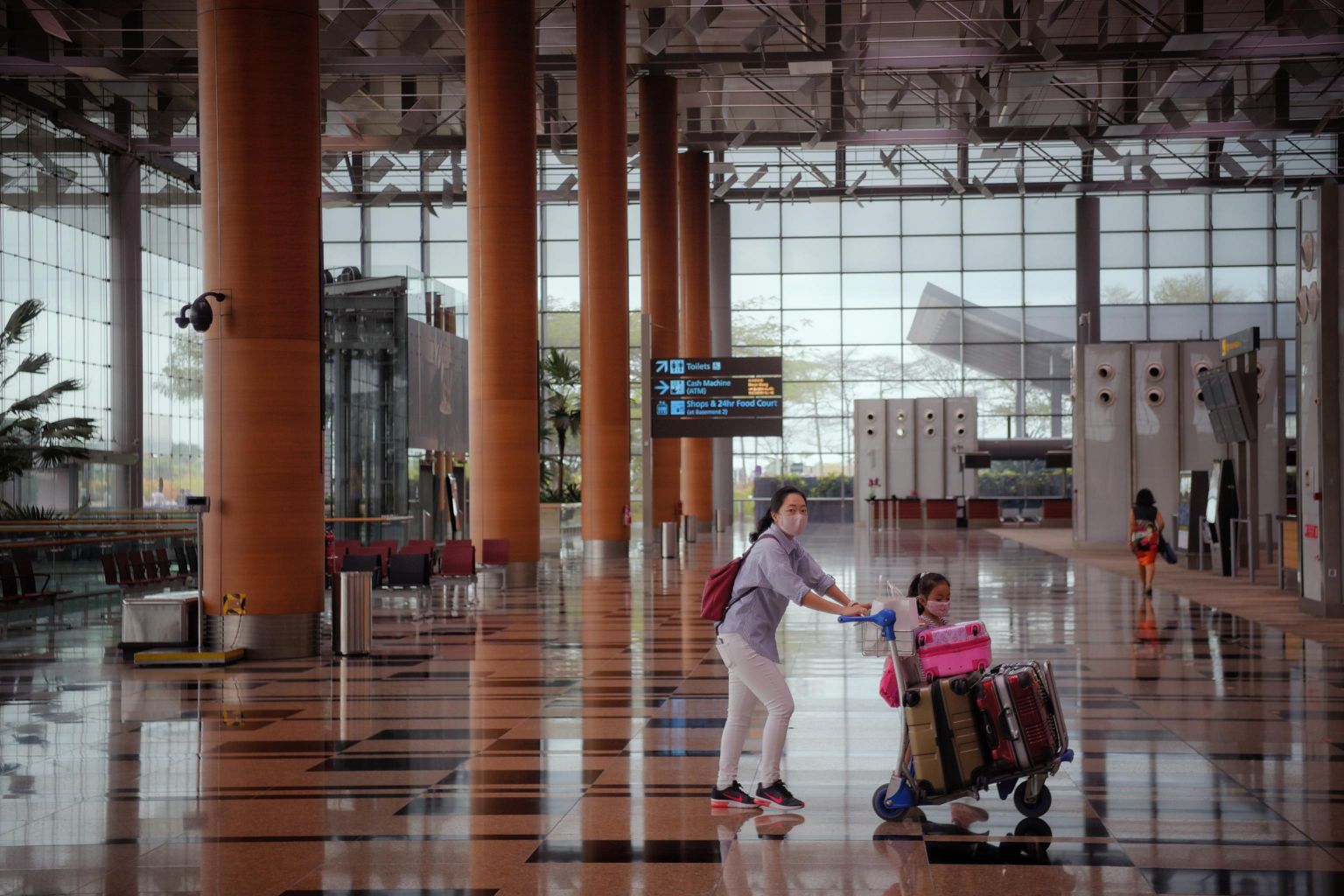Parliament: Shutting borders to countries such as India and Indonesia would impact lives and livelihoods in S'pore
Sign up now: Get ST's newsletters delivered to your inbox

Rather than close the borders to these countries entirely, Singapore needs to adopt a risk management approach to the inflow of such travellers.
ST PHOTO: MARK CHEONG
SINGAPORE - Banning travellers from countries such as India and Indonesia would impact the lives and livelihoods of many in Singapore and lead to an economic slowdown, Senior Minister of State for Health, Dr Koh Poh Koon, told Parliament on Tuesday (Feb 16).
Rather than close the borders to them entirely, Singapore needs to adopt a risk management approach to the inflow of such travellers, he said in response to Progress Singapore Party Non-Constituency MP Leong Mun Wai.
Mr Leong had asked about the Government's decision to keep the borders open to these travellers.
He said a disproportionately large number of imported cases had originated from the two countries.
As at Monday, there have been close to 11 million confirmed Covid-19 cases in India with 155,732 deaths, according to the World Health Organisation's dashboard.
Indonesia has over 1.2 million confirmed cases with 33,367 deaths.
Dr Koh said Singapore needs a continued inflow of migrant workers to support key economic sectors.
They include construction workers who build homes and critical infrastructure, as well as domestic workers who support caregiving needs.
"Many of such workers are from India and Indonesia," he added.
"If we close our borders to them, many Singaporeans will not be getting the keys to their homes, many households will... need to find alternative care arrangements for their loved ones... Some of the travellers are our citizens, permanent residents or their close relatives here," he noted.
"International connectivity is critical to our economy and survival. Singapore can ill afford to close ourselves off fully from the rest of the world."
Dr Koh said migrant workers and visitors are subject to stringent precautionary measures, including pre-departure tests, on-arrival tests and a 14-day stay-home notice (SHN) at dedicated facilities.
They are also tested again before they complete their SHN. If they are negative for Covid-19, they will be allowed to leave the facility.
As an added precaution, newly arrived work permit and S Pass workers in the construction, marine and process (CMP) sectors are subject to an additional 7-day isolation and testing regime at designated facilities after their 14-day SHN.
Workers in the aviation, maritime and CMP sectors also need to undergo rostered routine testing at least once every 14 days.
This is yet another line of defence to detect infections in the dormitories and high-risk workplaces early, Dr Koh added.
"As the global situation evolves, the multi-ministry task force will continue to review our border measures to strike a balance between public health considerations and the needs of our society and our economy."
In a separate response to Mr Gan Thiam Poh (Ang Mo Kio GRC), Dr Koh said less than one per cent of total arrivals since April last year, which mostly comprised travellers from Malaysia, mainland China, Indonesia and India, have tested positive for Covid-19.
Of those arriving from India and Indonesia, the proportion of positive cases was 3.7 per cent and 1.6 per cent respectively.
The proportion of imported cases out of total arrivals from Malaysia and mainland China were 0.04 per cent and 0.01 per cent respectively.
Mr Gan had also asked if the Health Ministry would require all foreigners arriving into Singapore to buy travel insurance which covers Covid-19 hospitalisation costs.
Dr Koh pointed out that since the start of the year, all work permit and S Pass holders have been required to have medical insurance that pays for medical costs should they develop symptoms or test positive for Covid-19 within two weeks of their arrival here.
From this month, all short-term visitors applying to enter Singapore via the air travel pass scheme or reciprocal green lanes also have to buy travel insurance that can cover any Covid-19-related medical expenses here.
These visitors can purchase the travel insurance from Singapore-based or overseas insurers.


